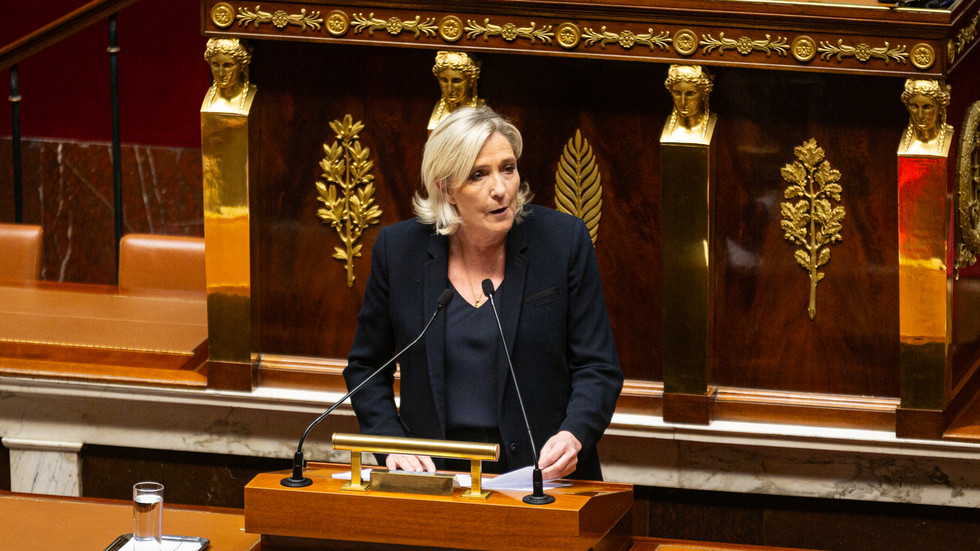In a recent interview with Le Parisien, right-wing politician Marine Le Pen offered a dire prediction for French President Emmanuel Macron, asserting that he has “angered everyone” and is likely to leave office before his term concludes in 2027. Le Pen, who leads the National Rally (RN) party and currently heads its parliamentary group, expressed her view that Macron has lost his influence both domestically and within the European Union. She emphasized her preparations for early elections, reflecting a cautious approach to the potential political turmoil ahead. Le Pen has experience running for the presidency, having faced Macron in 2017 and 2020, both times securing better results but ultimately falling short in her bids for power.
Le Pen’s assertions paint a bleak picture of Macron’s political standing, which she believes is deteriorating rapidly. She claimed, “Emmanuel Macron is done or almost done,” highlighting the fragility of the current administration as well as the limited institutional power Macron retains. Despite Macron’s repeated commitments to serve his full term, including dismissing the notion of resigning anytime soon, the mounting pressure from opposition forces suggests that the political climate in France is far from stable. The prediction of early elections underscores both her strategic mindset and an acknowledgment of the growing unrest among the populace regarding Macron’s leadership.
The political landscape in France has recently become tumultuous, particularly following snap elections in June and July, which yielded a hung parliament where no party secured an outright majority. This resulted in a prolonged period of negotiations and political maneuvering, culminating in the appointment of Michel Barnier as prime minister—a choice that was meant to stabilize the situation. Barnier, a seasoned politician known for his previous role as the EU’s chief negotiator on Brexit, seemed poised to unite the disparate factions within the government. However, his tenure was drastically short-lived, lasting only until early December when he famously lost a no-confidence vote, marking a significant turning point in the current political crisis.
Barnier’s failure in this critical parliamentary vote represents more than just a personal setback; it highlights the depth of the current governmental dysfunction in France. His loss is emblematic of the widespread discontent with the ruling administration, reflecting a loss of confidence in Macron’s ability to govern effectively. The situation has led to speculation about the future of Macron’s presidency and if he can regain control over a fractious political environment. Political analysts suggest that Macron’s governance might be increasingly challenged by a resurgent opposition, particularly under the leadership of figures like Le Pen who are capitalizing on public dissatisfaction.
In the broader context, Macron’s presidency has confronted challenges that extend beyond domestic issues. His perceived weakened standing in the European Union further complicates his role on the international stage, potentially isolating France when strong leadership and unity are paramount to address various pressing issues like economic recovery and foreign policy. Le Pen’s comments regarding Macron’s influence—or lack thereof—within the EU speak to a larger narrative of declining authority for the French president, as emerging political parties position themselves as alternatives to Macron’s historically centrist governance.
Overall, the combination of Le Pen’s assertive predictions, Macron’s beleaguered political position, and the chaotic backdrop of French parliamentary politics suggest an impending shift that could disrupt the status quo. With growing calls for change from both the opposition and segments of the electorate, early elections may become an unavoidable reality, reshaping the future landscape of French governance and potentially leading to a more radical right-wing approach under leaders like Le Pen. The stakes are high for all involved as the political dynamics evolve, and the ramifications of these developments will likely be felt throughout Europe.

